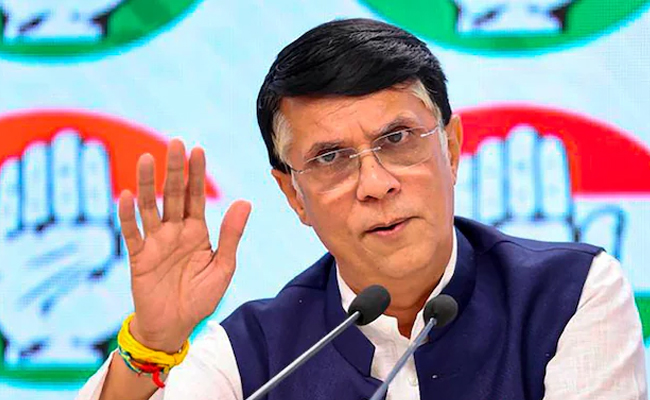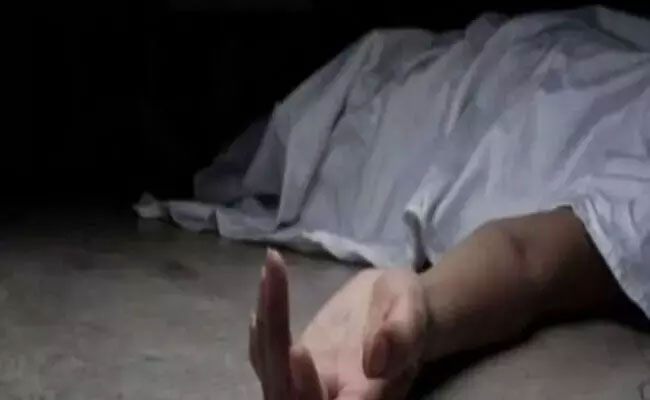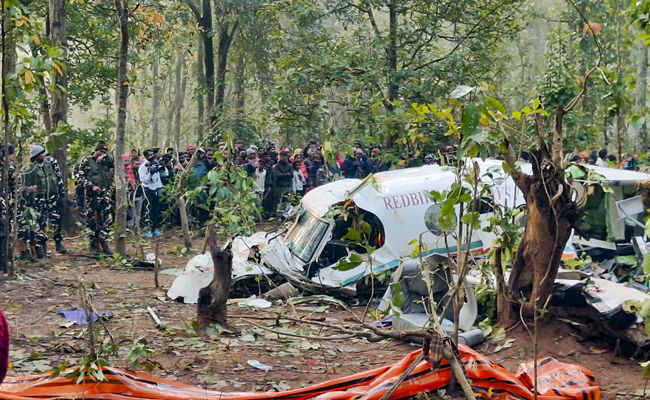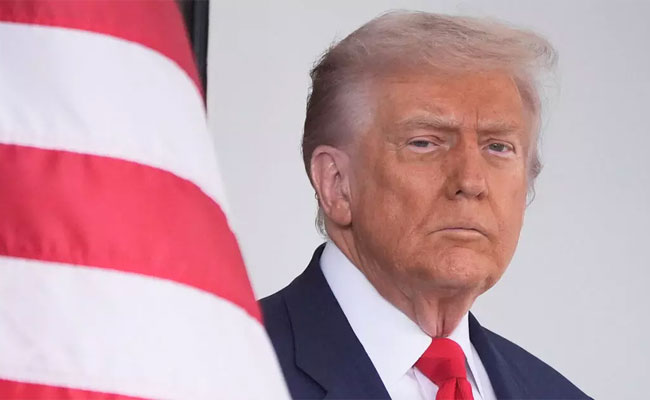New Delhi, Dec 11: The Centre on Monday defended the change in the National Medical Commission's logo to feature Dhanwantari -- the physicians of the Gods in Hindu mythology -- instead of a secular emblem, saying it was part of India's heritage and everyone must feel proud of it.
When the TMC's Santanu Sen raised the issue of the change in the logo through a Zero Hour mention in the Rajya Sabha, Health Minister Mansukh Mandaviya said Dhanwantari is a symbol of Indian medical science.
"(It was) already a part of the (Commission's) logo and just some colour has been added and nothing more," he said.
"This is India's heritage. I feel we should feel proud (about it)," he added.
The minister said the logo is designed by taking inspiration from the country's heritage.
"This is a symbol of medical science ... someone who had done so much research in medical science. We have used the photo with no other intention."
The Medical Council of India (MCI) logo was adopted in 1934 after the Indian Medical Council Act, 1933, was enacted.
The law defined medicine as "modern scientific medicine and includes surgery and obstetrics" and the logo used was based on the international symbol for medicine -- the staff of Aesclepius, the Greek god of medicine and healing.
The logo also featured a snake wound around the staff.
While there has been no official announcement of a change in the Commission's logo, a black and white logo with the depiction of Dhanwantari at the centre reportedly appeared in December 2022. The colourised version appeared a couple of months later.
Raising the issue through a Zero Hour mention, Sen demanded the restoration of the National Medical Commission's previous logo.
He said the Indian Medical Council Act of 1956 was repealed in 2020 despite objections from different corners of society and the medical fraternity.
"The National Medical Commission came into force from 25th September 2020, repealing the 64-year-old Indian Medical Council Act, 1956," he added.
Earlier it was termed as "western medicine", then it became "medicine" and finally it was termed as "modern medicine", Sen said and added that the logo of modern medicine is the staff of Aesclepius.
"And there was no need and there was no permissible condition, so far as the National Medical Commission is concerned, that this logo can be changed. But, unfortunately, we have seen in the recent past, I don't know (if it is) because of government instruction or by the National Medical Commission itself, they have changed the logo and they have brought a photograph of Dhanwantari in the logo," Sen said.
The "change of logo was absolutely not needed. It symbolises one particular religion," he added.
The National Medical Commission, he said, regulates medical curriculum and sanctions new medical colleges.
"Its function is not to promote any particular religion. Even the Ayush department did not change its logo but the National Medical Commission has," the TMC MP said.
"It is against the basic oath which doctors take after passing MBBS. They take the oath that we will treat each and every patient irrespective of their caste, creed or religion. We are not bound to treat one particular religion," he said.
The change of logo, he said, was against the basic essence of the Indian Constitution which, through Article 25 and 26 after the 42nd Amendment in 1976, states that India is a secular country.
"And we should promote the dovetailing of religion," Sen said and demanded that the National Medical Commission immediately restore the previous logo that did not symbolise any particular religion.
Let the Truth be known. If you read VB and like VB, please be a VB Supporter and Help us deliver the Truth to one and all.
New Delhi (PTI): The Congress on Tuesday launched a scathing attack on Prime Minister Narendra Modi after Indian Youth Congress chief Uday Bhanu Chib was arrested in connection with the shirtless protest at the AI Impact Summit, saying the PM is "scared" of dissent and questions being asked of him.
Chib was arrested by Delhi Police in connection with the shirtless protest staged by a group of youth wing members at the AI Impact Summit here last week, officials said on Tuesday.
Police have also stepped up security across key locations in the capital in anticipation of possible protests following Chib's arrest, which took the total number of people held in the case to eight.
ALSO READ: Leh-bound SpiceJet plane faces engine issue; returns to national capital
Asked about Chib's arrest, Congress' media and publicity department head Pawan Khera told PTI Videos, "It is the duty of the opposition to protest in a democracy but a dictator will never understand this."
"If you hear the speech of that dictator in Meerut recently you will get to know that the word democracy does not exist in his dictionary," Khera said, in a swipe at the prime minister.
Chib as well as other colleagues are being arrested from various parts of the country, Khera, who is in Bhopal for the party's Kisan Maha Chaupal against the India-US interim trade deal, said,
"This shows that Narendra Modi is scared of dissent and questions being asked of him. Narendra Modi is emerging as the most cowardly Prime Minister in the world. He is being blackmailed, he is a coward, he is scared," Khera alleged.
"It has been the Congress' history that no matter how much oppression we face, we will continue to raise issues of the people and will keep fighting with 'Ahimsa'," he said.
Police had earlier arrested seven Indian Youth Congress (IYC) workers, including three from Gwalior in Madhya Pradesh, for the protest at the Bharat Mandapam last Friday. They have been identified as Jitendra Yadav, Raj Gujjar and Ajay Kumar.
In addition, IYC's Uttar Pradesh general secretary Ritik alias Monty Shukla has been detained from Lalitpur in the state.
Senior officers said additional force has been deployed at the sensitive points, particularly in New Delhi, a hotspot for political demonstrations.
Security has been tightened around the Tilak Marg police station, where Chib is presently held, while barricades have been put up at the strategic points, with anti-riot teams on standby.
Quick Reaction Teams (QRTs) and additional companies of paramilitary forces have also been placed on alert to respond to any law and order situation, officials said.
Senior officers have directed the field staff to ensure that traffic movement remains smooth.
On Friday, a group of IYC workers staged a dramatic protest inside Hall No. 5 of the summit venue by removing their shirts to reveal T-shirts printed with slogans against the government and the India-US interim trade deal, before being whisked away by security personnel.
Police said the accused had registered online and obtained QR codes to gain entry into the venue.
The incident triggered a political slugfest, with the BJP calling it a "shameful act to tarnish India's image on the global stage", and the IYC defending it as a "peaceful" demonstration aimed at safeguarding national interests.
VIDEO | Delhi: On arrest of Indian Youth Congress president Uday Bhanu Chib in connection with 'shirtless' protest staged by a group of IYC members at the AI Impact Summit last week, Congress leader Pawan Khera (@Pawankhera) says, "Protesting is the duty and responsibility of the… pic.twitter.com/2MOujnPDLX
— Press Trust of India (@PTI_News) February 24, 2026





